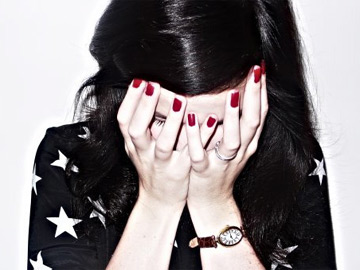 It just so happens that Jess is Digital Strategy Director at a mysterious Sydney advertising agency. She won’t say which, and she also won’t let me publish her surname. Or at leaIt’s not because she’s scared or nothin’, but on the internets, Jess is best known as the curator of a rather excellent blog called Something Changed, about which I wrote lovingly for FourThousand:
It just so happens that Jess is Digital Strategy Director at a mysterious Sydney advertising agency. She won’t say which, and she also won’t let me publish her surname. Or at leaIt’s not because she’s scared or nothin’, but on the internets, Jess is best known as the curator of a rather excellent blog called Something Changed, about which I wrote lovingly for FourThousand:
“Something Changed acts as Jess’ digital scrapbook, where she posts about new media, advertising, online campaigning, representations of the self, kids today, words, writing and books, funny things on the internets, politics, art, ideas, music, work, food, and sydney. The result is an aggregate of content that you’ll probably find either funny or fascinating if you’re a twenty-something who spends a lot of time online – and since you’re reading this, it’s not an unfair assumption to make.”
Jess, why did you start Something Changed? Was there an influential person or moment that encouraged its creation?
I started Something Changed almost two years ago because I was fascinated by people’s behaviour on the internet and I wanted to document my discoveries. It was partly so I could archive and remember facts, figures and links more efficiently, and partly to have something to show for the immense amount of reading and research I do! I discovered Tumblr through Gawker’s exhaustive coverage of Jakob Lodwick and Julia Allison‘s relationship which largely played out on the Tumblr platform. Tumblr was perfect for me because I like to present raw data that interests me as I find it, rather than crafting long posts.
Where do you find the majority of the articles that you link?
On Tumblr you can post stuff you create, post stuff that you find online, or use their reblog feature (which is sort of an automatic “retweet” feature) to post other’s content with a link crediting them. About 75 per cent of what I blog is from the second category. I find it by either investigating a topic that interests my by searching and following links, setting up RSS feeds to my favourite blogs and websites, and by following people who I respect and who will post things I find interesting.
Does your exhaustive online presence ever spill into your professional life? Do your workmates know of the blog?
In fact the internet IS my job, lucky me! I work for an ad agency where I am the digital strategy director. Since I work on campaigns and strategy it’s considered part of my work. My workmates and bosses definitely know of the blog, I bang on about it exhaustively. In fact my boss promised to buy me a cake when I passed a big milestone in the amount of readers I had, but I passed it ages ago and he is still yet to come through. Two of them have started Tumblrs themselves. We all love the internet at work.
Why the anonymity?
Well I’m not really sure now! I was doing some big work for clients around which there is some sensitivity, and I didn’t want any posts to be taken out of context and my personal views being ascribed to the client. I think in the next few months I’ll probably get with the times and put up my full name. I’ve noticed all my peers in my industry do.
Do you often give thought to how you portray yourself online and the legacy you’re building, or do you just throw it all out there?
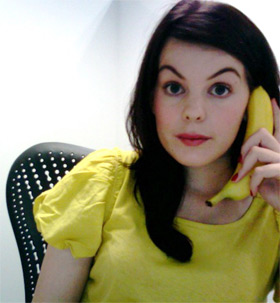
Something Changed started as mainly a vehicle for professional development and research and largely it still is. I barely ever talk about myself (apart from “I saw this, I read this, I ate this, I visited this”) or my feelings. So at worst it will be a record of what interested me at different stages of my life, which is fine. Thank god I have never posted a poem or ruminations on my relationships.
What do you think Something Changed adds to the web?
Lots of people in marketing and advertising view the internet from very very far away with a telescope. The world does not need another “how to be a powerblogger” blog or post on “how to measure social media ROI”. I like to think I see the raw internet – the amazing stuff people create, the intense stuff people say about their lives and feelings, the fascinating ways they represent themselves online. Then I try and distill that onto my blog. It’s like a little field study from an anthropologist completely embedded in the culture they observe. Having said that, I don’t recommend people see my blog as anything special – instead they should set up their own!
As you said, you barely ever talk about yourself. But you also barely ever talk about why you find something interesting, or worthwhile posting.
You’re right. I tend to like information that I view as primary sources – people who produce things from scratch, whether it’s blog posts about their lives of feelings, collating things that inspire them, producing amazing things likes videos or songs. Or academic analysis- people who take rigorous, well-informed approach to analyzing the internet and its sociology.
I don’t have time for anything in between, that whole raft of “people who don’t really understand the internet talking in vague general terms about the internet.”
I have things I definitely won’t post, like anything about swine flu, anything about that Best Job in the World tourism campaign, or tips to become a Twitter poweruser.
Do many of your non-ad agency friends follow the blog? How do you describe the blog to a real-life friend?
None of my friends that I’ve known forever are in the ad industry. They all read it, sporadically. When I refer to my blog I adopt a stupid mocking tone and say “my blawg.” If they ask about it I give a knowing smile and say, “I’m so famous on the internet you guys.” If a waiter takes ages to take our drink orders I’m like, “this would never happen to me on the internet.”
You and I both spend a lot of time online. I’ve gotten to the point where I’ve develop a kind of bias in the way that I access information online. I start to overstate the way that I operate and assume that others follow similar methods; if they don’t, I become either amused or frustrated, depending on my mood. But that’s a curious aside. When did you become a heavy internet user, and how did your skills develop to the point that they’re at now? (Because let’s face it, good internets is a skill.)
I know exactly what you mean. Good internet is definitely a skill. I am totally self taught, I didn’t even have email until 2000 or 2001. In 2003, someone at uni said, “email me a draft of your paper” and I said, “oh it’s pretty long for an email,” and then attachments were explained to me. I couldn’t use a digital camera until 2004. I couldn’t pirate music! It all sounds a bit embarrassing now.
It was in 2005 then that I started using the internet heavily because I joined some forums. Before that, I had always thought of the “web” quite disparagingly, “who are these people? Read a book, or go outside.” Now it’s completely a part of my daily routine. It’s really changed my life – how I think, what inspires me, how I work, the people I’ve met.
It’s helped that I can do it all day everyday at my work. Spending ten hours a day on something is a good way to get quite good at something. In every role I’ve had in my career, to do a good job I need insight into what people think and feel, a creative spark to generate ideas, and a plan to my implement strategy. So the internet is crucial to every single element, and my employers have always let me have free reign to work that way.
Do you keep a private journal?
No! I’m too self-conscious. If I want to remember how I felt about something, I do a keyword search in my Gmail and cringe at old emails I wrote my friends.
How did you become digital strategy director at your agency? Was ‘good internets’ part of the job description?
I met the CEO of my agency when I consulted on online strategy on a big national campaign he was working on. A few months later my position was created for me when I said I was ready for a new job – so there was actually no job description! I’m so lucky now that I get to do what I love with the cleverest team and the best clients.
 The career path to Digital Strategy Director was not an obvious one. I was a journalist, then moved to Melbourne and could not immediately get a journalism job so I got a job doing the overseas publicity for Neighbours [pictured right *snigger*]. I only got the job because at the interview I told the producer, “You know it’s not too late to make Izzie’s baby Jack’s,” or something. Since I was spending my days trying to get freelance writing work I had had plenty of time to watch Neighbours fortunately.
The career path to Digital Strategy Director was not an obvious one. I was a journalist, then moved to Melbourne and could not immediately get a journalism job so I got a job doing the overseas publicity for Neighbours [pictured right *snigger*]. I only got the job because at the interview I told the producer, “You know it’s not too late to make Izzie’s baby Jack’s,” or something. Since I was spending my days trying to get freelance writing work I had had plenty of time to watch Neighbours fortunately.
Of course part of my job was to look after the BBC’s Neighbours website. It was my first taste of a really intense online fan community. They had a forum and everything. I learnt so much from that job. That an official website will never be as fascinating as a fan website unless you let go of the PR reigns (why would you want to read about an actors’ theatre aspirations on our site when you could go to an unofficial site to read about their love life?). That fans create the best material, that fans really get upset if you make changes without consulting them. It was a crash course in Internet.
Then I got to do my dream job being the Online Director doing national political campaigning, where I learnt about building movements – uniting people around taking action online and offline to achieve social change. Then I consulted on another big campaign, then I got this job. I always think of that thing people say, “the jobs the youth of today will be doing when they grow up haven’t even been invented yet.” At our Careers Centre at school they basically said girls could be Lawyers, Accountants, Gallery Curators or PRs.
I’m assuming that you went to university. Tell me about your time there.
I did! I went to uni to study English thinking I would have a career doing some kind of writing. In first year I became interested in social justice issues and for the first time paid attention to politics and current affairs. Before then I was strictly a reading, writing, art galleries, theatre type of person. So uni was fun, I did the student politics/share house/shop at Salvos/“feed yourself on $5 a day” thing until my last year. Then I got a full time newspaper journalism cadetship, and had to do my Honours year full time at the same time.
Was that a difficult year? Did you ever question what you were doing?
It was difficult. Fortunately it was things I loved doing – researching and writing. I’m also one of those people who needs to be busy to get things done. I like approaching big tasks (daily deadline of journalism combined with a yearly deadline of handing in a thesis) and strategically breaking them down in an efficient way. Having said that, I am never studying again. And whenever my friends say “I’m thinking of going back to uni,” I always say “NO! YOU FORGET HOW HARD IT IS!”
How did you land the cadetship? Was it shit or awesome?
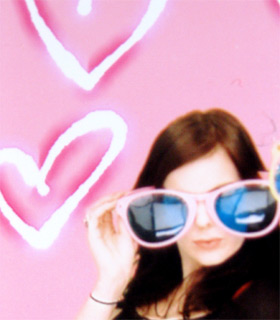
I decided suddenly I wanted to be a journalist so I got a two week cadetship at a newspaper. I was lucky they gave it to me because I think now they only take people studying Proper Journalism at uni – a bit short sighted in my opinion, but I think it’s because the universities provide insurance. I got a story in the paper almost every day, including a huge feature on mobile phone use that was published in the Features liftout on the Saturday. The story is completely lame and I am so glad it’s not accessible by Google.
After my two weeks the Chief of Staff said they were hiring a cadet, and would I like to apply? I said “yes”. I interviewed and didn’t get it – someone else did. But a few weeks later they phoned and said I could be a cadet anyway. So that’s how I got the job, and now the other cadet is one of my best friends. The cadetship was amazing. Every day as a general news reporter is different and being a journalist is like having a license to walk up to anyone and ask them anything you want.
Do you read newspapers? Could you imagine being a full-time news reporter?
I only read newspapers on the weekends: the Australian, the Sydney Morning Herald, Sunday Sun Herald and Sunday Telegraph. I get rid of all the Drive, Careers, Business and rubbishy sections. Then read the news, then the Lifestyle, then glossy lifestyle supplements. It’s a habit. Print will never die while people have weekend brunch routines to uphold.
I can’t imagine being a full-time news reporter. I would love the thrill of finding a big story but miss the calming routine of planning and strategising in advance. I get a nice mix of thrillingly busy versus long term planning in my current work, so I wouldn’t go back.
Lots of people view their time at university as instrumental in their personal development. What did you learn about yourself during that time?
I learnt the same thing at uni that has proved true in the workplace. Studying and work (doing your actual job as per your job description) teaches you nothing. You have to do it and do it well. But everything fun, amazing, professionally exciting or leading to personal growth has always been thanks to things I do on the side. Whether that’s groups I joined at uni, friends I made on the internet, ideas and projects I’ve suggested at work, or new career opportunities I’ve conjured up. When I think about what my life would be like without my blog that I randomly started a few years ago… I just can’t imagine it!
Something Changed is my favourite Australian blog. You’d best subscribe via email or RSS. Unsurpisingly, Jess is also quite lively on Twitter. Thanks for the interview, Jess!
 It just so happens that Jess is Digital Strategy Director at a mysterious Sydney advertising agency. She won’t say which, and she also won’t let me publish her surname. Or at leaIt’s not because she’s scared or nothin’, but on the internets, Jess is best known as the curator of a rather excellent blog called
It just so happens that Jess is Digital Strategy Director at a mysterious Sydney advertising agency. She won’t say which, and she also won’t let me publish her surname. Or at leaIt’s not because she’s scared or nothin’, but on the internets, Jess is best known as the curator of a rather excellent blog called 
 The career path to Digital Strategy Director was not an obvious one. I was a journalist, then moved to Melbourne and could not immediately get a journalism job so I got a job doing the overseas publicity for Neighbours [pictured right *snigger*]. I only got the job because at the interview I told the producer, “You know it’s not too late to make Izzie’s baby Jack’s,” or something. Since I was spending my days trying to get freelance writing work I had had plenty of time to watch Neighbours fortunately.
The career path to Digital Strategy Director was not an obvious one. I was a journalist, then moved to Melbourne and could not immediately get a journalism job so I got a job doing the overseas publicity for Neighbours [pictured right *snigger*]. I only got the job because at the interview I told the producer, “You know it’s not too late to make Izzie’s baby Jack’s,” or something. Since I was spending my days trying to get freelance writing work I had had plenty of time to watch Neighbours fortunately.
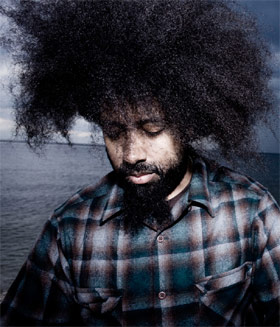 I spoke with musician/comedian
I spoke with musician/comedian 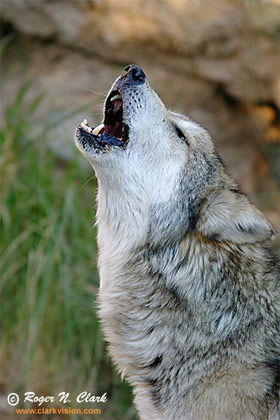 A: Do you have a power animal?
A: Do you have a power animal?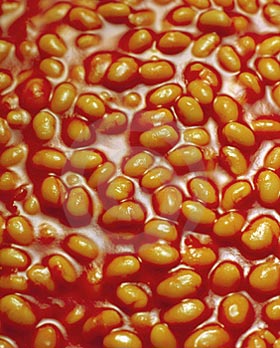 R: It depends. Sometimes I feel like eggy-weggs. But for me, cold breakfasts are a little more efficient than a hot breakfast. Those are more involved. The hot breakfast is something you sit down with and really HAVE the breakfast. Whereas if it’s muesli and soy milk, or yoghurt, you can just take it with you and eat it. You don’t feel like an asshole.
R: It depends. Sometimes I feel like eggy-weggs. But for me, cold breakfasts are a little more efficient than a hot breakfast. Those are more involved. The hot breakfast is something you sit down with and really HAVE the breakfast. Whereas if it’s muesli and soy milk, or yoghurt, you can just take it with you and eat it. You don’t feel like an asshole.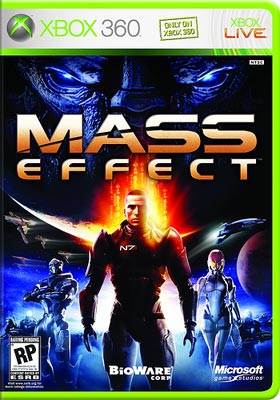 A: Do you play video games?
A: Do you play video games? R: That’s a hard one. I don’t know if I’d want to be him, but the Tasmanian Devil is pretty hilarious. I guess the most.. intellectual of the characters would be Bugs Bunny, so I’m gonna say that even though it’s pretty generic. He was the most balanced, and in control. He tricked people. I like that about him.
R: That’s a hard one. I don’t know if I’d want to be him, but the Tasmanian Devil is pretty hilarious. I guess the most.. intellectual of the characters would be Bugs Bunny, so I’m gonna say that even though it’s pretty generic. He was the most balanced, and in control. He tricked people. I like that about him.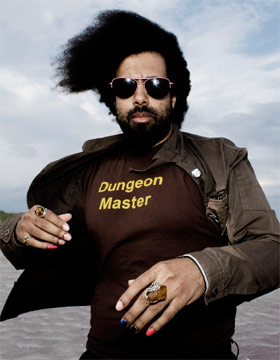 A: So when this interview is published online, you’ll be the first to know about it through Google Alerts.
A: So when this interview is published online, you’ll be the first to know about it through Google Alerts.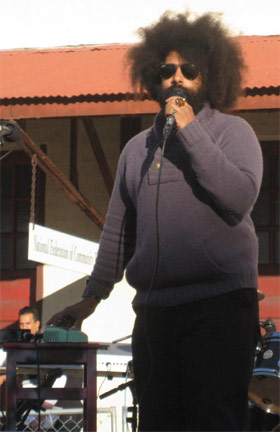 A: Or do you just assume that everyone knows who you are, instantly, because you’re a mega-celebrity?
A: Or do you just assume that everyone knows who you are, instantly, because you’re a mega-celebrity? A: How do you deal with that?
A: How do you deal with that?